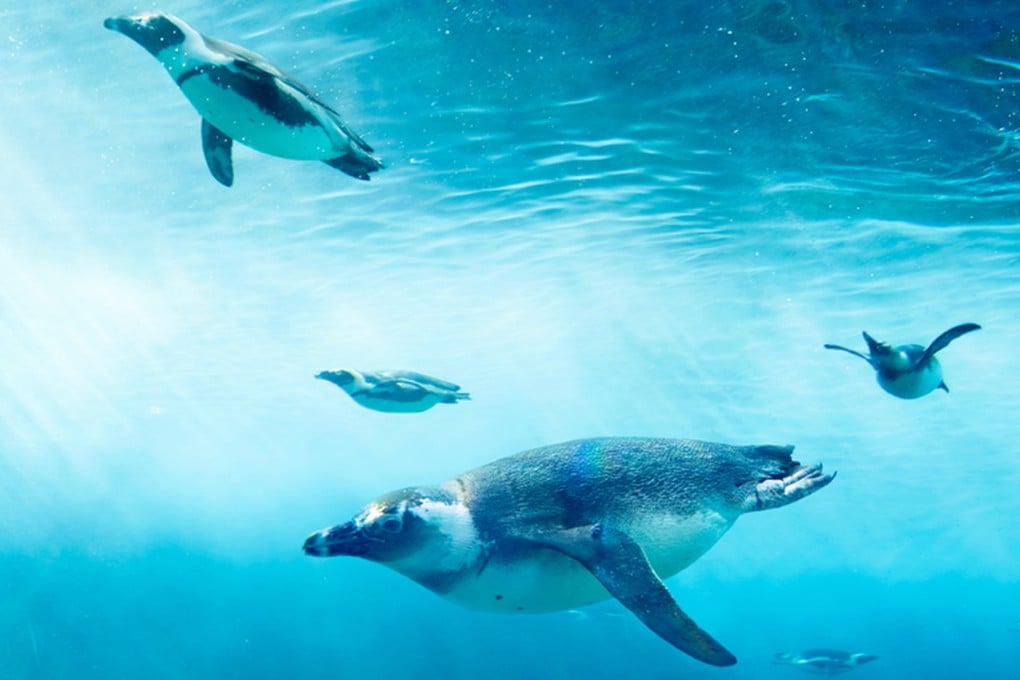Chinese scientists say penguins stopped flying and became great swimmers long before polar ice sheets formed
- International team reconstructed over 60 million years of evolutionary history by analysing genomes of living and recently extinct species and fossil data
- Penguins’ past adaptability has researchers optimistic about their future survival prospects in the face of climate change

Penguins lost their ability to fly more than 60 million years ago, long before polar ice sheets formed, an international study has found.
The seabirds became capable of wing-propelled diving in the ocean, which became their major food source, according to joint lead author of the study, Zhou Chengran, of Shenzhen-based BGI-Research.

“Penguins in the South Pole do not face land predators, like polar bears in the North Pole. Not being able to fly does not increase their risk of being preyed on,” she said.
“Penguins’ wings are similar to fish fins and unlike the foldable wings of other water diving birds. That way they can reduce water resistance and save energy while swimming. Losing their flying ability helped them live in the ocean.”
While penguins are at the front line of global temperature changes, their past adaptability has researchers buoyant about their future survival prospects.
The scientists reconstructed more than 60 million years of evolutionary history of penguins by analysing the genomes of living and recently extinct penguin species (within the last 300 years), and data from fossils.